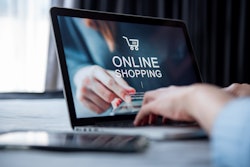
Mobiquity released results of a new survey titled “The Rise in Digital Adoption Among Baby Boomers” highlighting unprecedented rates of tech adoption among America’s older generations. The survey polled US-based consumers using both Android and iOS devices.
While digital solutions will undoubtedly be a necessary tool for consumers, there is an overarching belief that digital adoption is slower for the Baby Boomer generation, who grew up without the technology that younger generations have used throughout their lives.
According to Mobiquity’s findings, 88% of Baby Boomers agreed that technology has helped them during the COVID-19 pandemic - only 3% lower than younger generations. However, when asked if they feel safe and secure using new technologies, only 78% of Baby Boomers agreed compared to 86% of non-Boomers. And when it comes to enjoying trying new technologies, 77% of Boomers agreed versus 88% of non-Boomers.
“Baby Boomers are adopting technology more rapidly than we previously believed, but there are still variations in digital preferences that brands will need to consider as we move into the next phase of digital transformation,” said Brian Levine, Vice President of Strategy and Analytics at Mobiquity. “Considering the needs of users from all generations will be key to developing a highly effective digital solution.”
The biggest generational difference that the data uncovered was the divide in business interaction methods. 55% percent of Baby Boomers would prefer to do business in person whereas 72% of non-Boomers prefer digital business interactions. Of course, the pandemic has led companies to adopt contactless services and technologies that deliver a hybrid experience.
The rise in curbside pickup and telehealth represent two key examples of these hybrid approaches where technology drives interpersonal interactions with brands. The biggest increases in hybrid adoption for Boomers during the pandemic are:
- Baby Boomers had a 431% increase in grocery curbside pickup, 410% increase in retail and 300% increase for restaurant pickup (compared to a less drastic increase for non-Boomers of 169%, 195% and 151% respectively).
- Baby Boomers also showed a 469% increase in the utilization of telehealth.
“88% of Baby Boomers agreed that they will continue to use digital technology to make daily life easier once the COVID-19 pandemic has resolved. This was only slightly less than the 90% of younger generations,” said Levine. “This broad adoption of technology by an older generation should prompt brands to rapidly adopt digital solutions if they haven’t done so already.”
If you are interested in learning more about how Mobiquity is quickly transforming companies’ digital strategies, see here: https://www.mobiquity.com/our-work
About Mobiquity Mobiquity is a digital consultancy that partners with the world's leading brands to design and deliver compelling digital products and services for their customers. Its approach balances human needs with usefully applied technology, unbound creativity with research and analytics, and agile development with strict engineering and security standards. Mobiquity's end-to-end services consider every dimension of a digital business from marketing to IT, providing strategy, experience design, product engineering, cloud services and analytics. Mobiquity has extensive experience in creating new greenfield digital banks and new labels for our Fintech and incumbent banking clients. Based on this experience, we have set up and defined general designs, frameworks, workflows and building blocks that accelerate the setup of a new bank, ensure a short time to market and make use of proven best practices.














